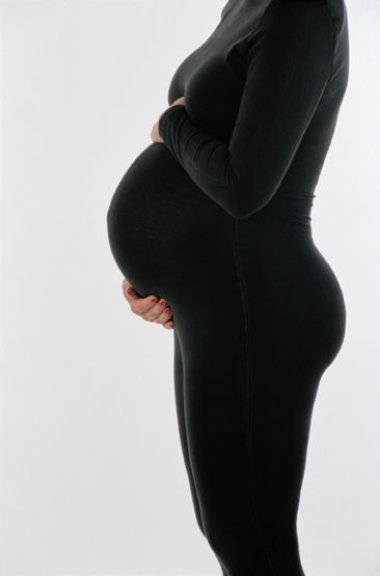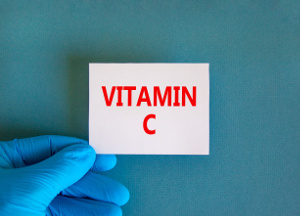 The most common term for this nutrient is folic acid, whereas vitamin B9 is hardly ever used. Folic acid is the synthetic form that is found in vitamin pills, while folate and folacin are the forms of the nutrient that are found naturally in food. Folic acid is very stable and gets converted into folate in the body. The vitamin is water-soluble. Most of it gets stored in the liver, which contains around half the body's total amount of folate. The nutrient is destroyed by boiling and heating.
The most common term for this nutrient is folic acid, whereas vitamin B9 is hardly ever used. Folic acid is the synthetic form that is found in vitamin pills, while folate and folacin are the forms of the nutrient that are found naturally in food. Folic acid is very stable and gets converted into folate in the body. The vitamin is water-soluble. Most of it gets stored in the liver, which contains around half the body's total amount of folate. The nutrient is destroyed by boiling and heating.
 Vitamin B12 is a common term for a group of chemically related substances that all have vitamin activity. They are also known as cobalamins. The biosynthesis of the basic structure is handled by bacteria that are found many places in nature. The uptake of vitamin B12 from food requires the presence of the protein intrinsic factor that is formed in the gastric mucosa. Intrinsic factor binds to vitamin B12 and transports it into the body from the small intestine. Coli bacteria in the colon also produce vitamin B12 that is taken up by the body. Vitamin B12 is stored in the liver for up to several months at a time, and we humans are also able to reuse vitamin B12 that has been absorbed from the intestine. It is generally more difficult for the body to absorb vitamin B12 compared with other vitamins, and our ability to take up the nutrient decreases as we grow older. The synthetic basic form of vitamin B12 is used in nutritional supplements and also as a food additive. The dosages are typically rather large in order to ensure sufficient uptake of the nutrient.
Vitamin B12 is a common term for a group of chemically related substances that all have vitamin activity. They are also known as cobalamins. The biosynthesis of the basic structure is handled by bacteria that are found many places in nature. The uptake of vitamin B12 from food requires the presence of the protein intrinsic factor that is formed in the gastric mucosa. Intrinsic factor binds to vitamin B12 and transports it into the body from the small intestine. Coli bacteria in the colon also produce vitamin B12 that is taken up by the body. Vitamin B12 is stored in the liver for up to several months at a time, and we humans are also able to reuse vitamin B12 that has been absorbed from the intestine. It is generally more difficult for the body to absorb vitamin B12 compared with other vitamins, and our ability to take up the nutrient decreases as we grow older. The synthetic basic form of vitamin B12 is used in nutritional supplements and also as a food additive. The dosages are typically rather large in order to ensure sufficient uptake of the nutrient.
 Vitamin B2 is water-soluble and because it does not get stored in the body we depend on regular intake of the nutrient. Vitamin B2 is also known as lactoflavin and is used as a yellow colouring agent/additive in various foods. When ingested in very large quantities vitamin B2 causes the urine to turn highly yellow. Vitamin B2 is destroyed by light, heating, and alcohol.
Vitamin B2 is water-soluble and because it does not get stored in the body we depend on regular intake of the nutrient. Vitamin B2 is also known as lactoflavin and is used as a yellow colouring agent/additive in various foods. When ingested in very large quantities vitamin B2 causes the urine to turn highly yellow. Vitamin B2 is destroyed by light, heating, and alcohol.
 There are several kinds of vitamin D with the two most important being:
There are several kinds of vitamin D with the two most important being:
- D2, ergocalciferol, that is found naturally in the plant kingdom.
- Vitamin D3, cholecalciferol, that is found naturally in the animal kingdom.
Humans synthesise vitamin D (cholecalciferol) from sunlight (UV-B rays) and a cholesterol compound in the skin, which is converted to active vitamins by means of processes in the liver and kidneys. We humans are only able to synthesise vitamin D during the summer season when the sun is high in the sky. Excess amounts of the nutrient are stored in the liver for future use. Light skin produces substantially larger amounts of vitamin D than dark skin. In contrast, dark skin protects against vitamin D overproduction. As we grow older, our vitamin D production decreases. Vitamin D is also called a provitamin or hormone, simply because we are easily able to make it ourselves, and all cells in the body have vitamin D receptors.
Vitamin D is fat-soluble and is stored in the body's fat tissue when ingested in large amounts. Vitamin D is destroyed by light and heat from cooking.
 The most common term for this nutrient is folic acid, whereas vitamin B9 is hardly ever used. Folic acid is the synthetic form that is found in vitamin pills, while folate and folacin are the forms of the nutrient that are found naturally in food. Folic acid is very stable and gets converted into folate in the body. The vitamin is water-soluble. Most of it gets stored in the liver, which contains around half the body's total amount of folate. The nutrient is destroyed by boiling and heating.
The most common term for this nutrient is folic acid, whereas vitamin B9 is hardly ever used. Folic acid is the synthetic form that is found in vitamin pills, while folate and folacin are the forms of the nutrient that are found naturally in food. Folic acid is very stable and gets converted into folate in the body. The vitamin is water-soluble. Most of it gets stored in the liver, which contains around half the body's total amount of folate. The nutrient is destroyed by boiling and heating.











 Vitamin B12 is a common term for a group of chemically related substances that all have vitamin activity. They are also known as cobalamins. The biosynthesis of the basic structure is handled by bacteria that are found many places in nature. The uptake of vitamin B12 from food requires the presence of the protein intrinsic factor that is formed in the gastric mucosa. Intrinsic factor binds to vitamin B12 and transports it into the body from the small intestine. Coli bacteria in the colon also produce vitamin B12 that is taken up by the body. Vitamin B12 is stored in the liver for up to several months at a time, and we humans are also able to reuse vitamin B12 that has been absorbed from the intestine. It is generally more difficult for the body to absorb vitamin B12 compared with other vitamins, and our ability to take up the nutrient decreases as we grow older. The synthetic basic form of vitamin B12 is used in nutritional supplements and also as a food additive. The dosages are typically rather large in order to ensure sufficient uptake of the nutrient.
Vitamin B12 is a common term for a group of chemically related substances that all have vitamin activity. They are also known as cobalamins. The biosynthesis of the basic structure is handled by bacteria that are found many places in nature. The uptake of vitamin B12 from food requires the presence of the protein intrinsic factor that is formed in the gastric mucosa. Intrinsic factor binds to vitamin B12 and transports it into the body from the small intestine. Coli bacteria in the colon also produce vitamin B12 that is taken up by the body. Vitamin B12 is stored in the liver for up to several months at a time, and we humans are also able to reuse vitamin B12 that has been absorbed from the intestine. It is generally more difficult for the body to absorb vitamin B12 compared with other vitamins, and our ability to take up the nutrient decreases as we grow older. The synthetic basic form of vitamin B12 is used in nutritional supplements and also as a food additive. The dosages are typically rather large in order to ensure sufficient uptake of the nutrient. Vitamin B2 is water-soluble and because it does not get stored in the body we depend on regular intake of the nutrient. Vitamin B2 is also known as lactoflavin and is used as a yellow colouring agent/additive in various foods. When ingested in very large quantities vitamin B2 causes the urine to turn highly yellow. Vitamin B2 is destroyed by light, heating, and alcohol.
Vitamin B2 is water-soluble and because it does not get stored in the body we depend on regular intake of the nutrient. Vitamin B2 is also known as lactoflavin and is used as a yellow colouring agent/additive in various foods. When ingested in very large quantities vitamin B2 causes the urine to turn highly yellow. Vitamin B2 is destroyed by light, heating, and alcohol. There are several kinds of vitamin D with the two most important being:
There are several kinds of vitamin D with the two most important being: "After about one week of taking the Q10 supplement I could feel a huge difference," says 23-year old Alan Piccini, who has been suffering from extreme fatigue and muscle aches ever since he was a child.
"After about one week of taking the Q10 supplement I could feel a huge difference," says 23-year old Alan Piccini, who has been suffering from extreme fatigue and muscle aches ever since he was a child. “Taking capsules with co-enzyme Q10 has freed me of the severe side effects of my cholesterol lowering medicine,” Mrs Franken explains.
“Taking capsules with co-enzyme Q10 has freed me of the severe side effects of my cholesterol lowering medicine,” Mrs Franken explains.